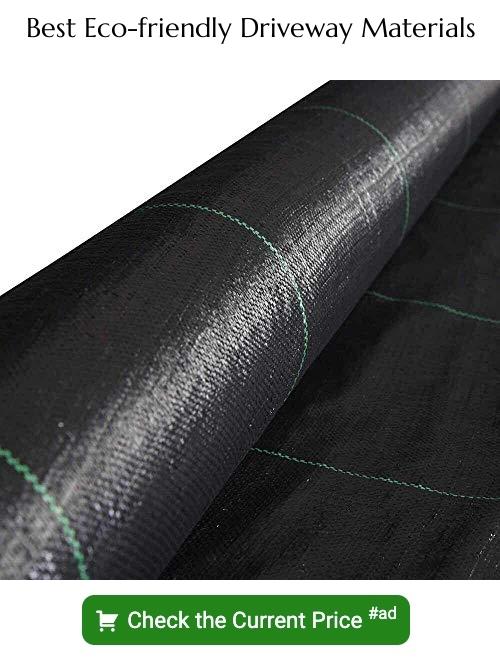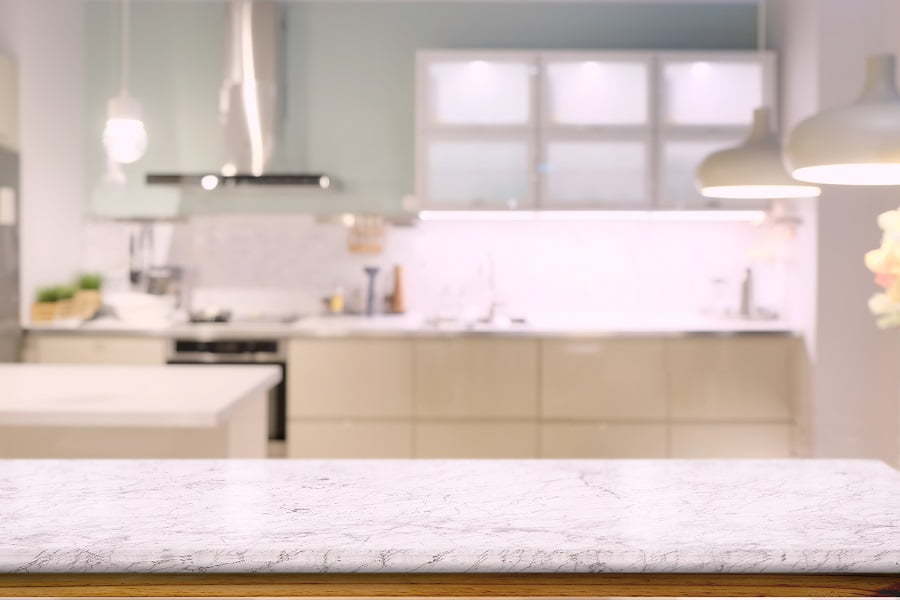Last updated on
Discover eco-friendly alternatives to transform your traditional asphalt driveway into a sustainable and attractive green space for a better tomorrow.
Are you tired of the traditional asphalt driveway that’s not only boring but also harmful to the environment? Well, it’s time to switch things up and go green with your driveway! There are plenty of eco-friendly alternatives that not only look amazing but also help reduce your carbon footprint. In this article, we’ll explore some of the best green alternatives to asphalt driveways that will make your home stand out while contributing positively to the planet.
So, let’s dive in and discover how you can have a stunning driveway without damaging our beautiful Earth!
What Is a Green Driveway?
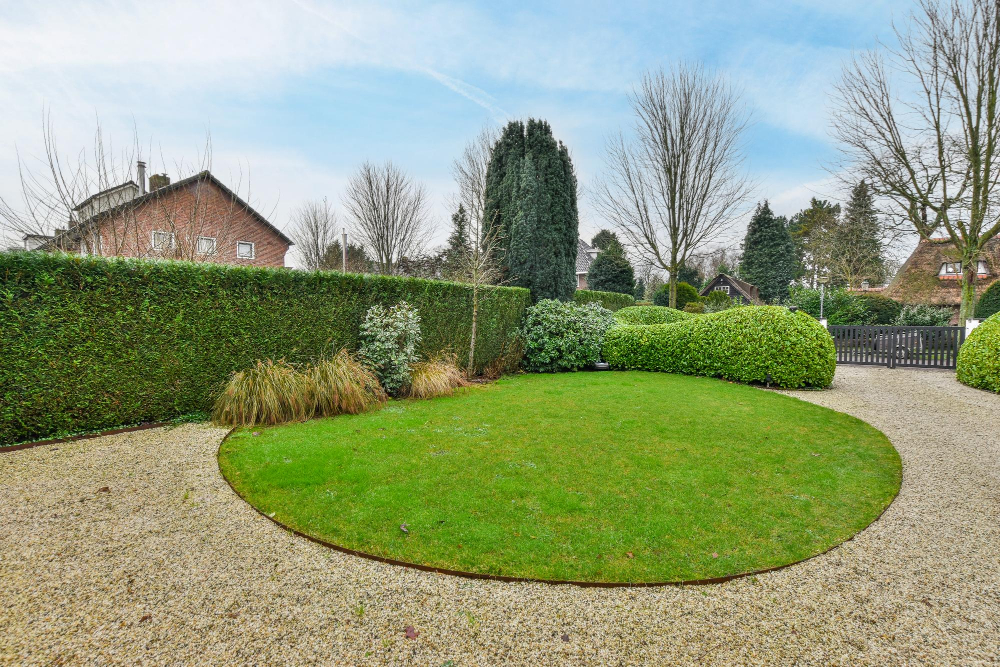
A green driveway is an eco-friendly alternative to traditional asphalt driveways. It’s a sustainable and attractive option that helps reduce your carbon footprint while adding value to your home.
A green driveway can be made from various materials such as gravel, seashells, porous concrete, grass pavers or even recycled plastic paving.
The main idea behind a green driveway is to create a permeable surface that allows rainwater to penetrate the ground instead of running off into storm drains. This helps prevent erosion and flooding in your area while also replenishing groundwater supplies.
Green driveways are not only environmentally friendly but also aesthetically pleasing. They come in different colors and textures which can complement any landscape design you have in mind for your property.
Benefits of an Environmentally Friendly Driveway
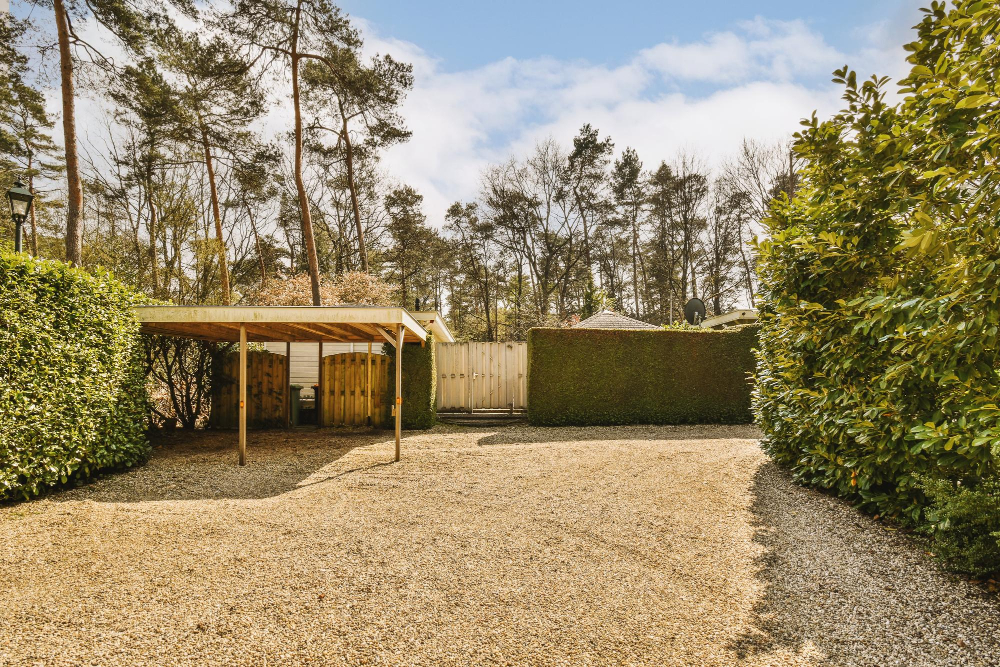
One of the most significant advantages is its ability to reduce water runoff and prevent soil erosion, which can be a major problem with traditional asphalt driveways. By using permeable materials such as gravel or porous concrete, rainwater can seep through the surface and replenish groundwater supplies instead of running off into storm drains.
Another benefit is improved air quality since many green driveway options do not require heavy machinery for installation or maintenance. This means less pollution from exhaust fumes and noise pollution in your neighborhood.
In addition to environmental benefits, an eco-friendly driveway also adds aesthetic value to your home by creating a unique look that stands out from other homes on your street. Whether you choose grass pavers or recycled plastic paving, there are plenty of options available that will complement any landscaping design while still being sustainable.
Gravel Driveway Basics
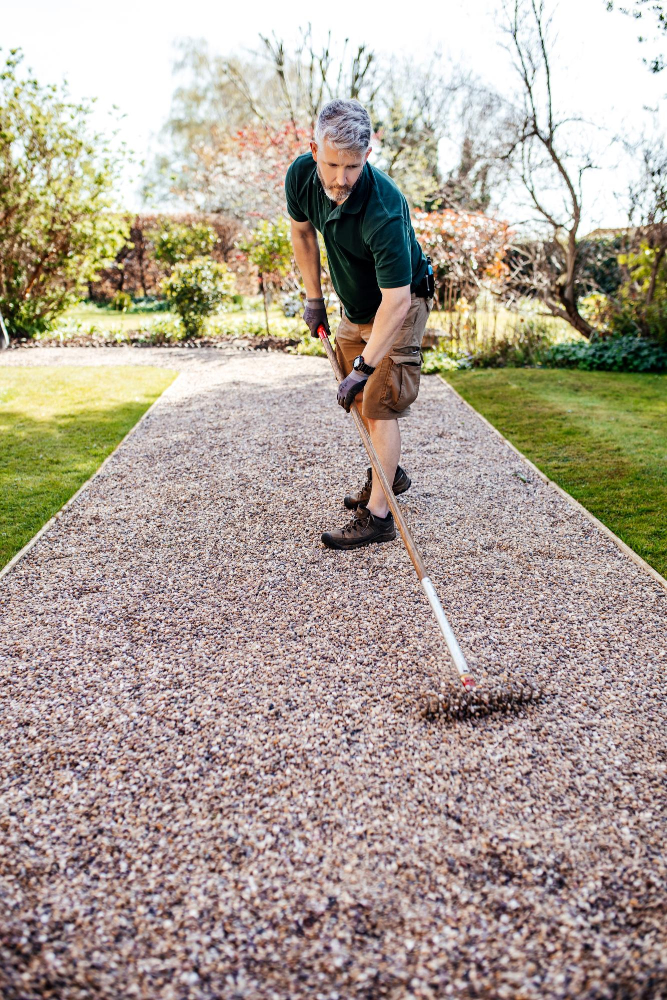
Gravel driveways are easy to install, require minimal maintenance, and provide excellent drainage for rainwater. They also offer a rustic look that can complement any home’s exterior.
To create a gravel driveway, you’ll need to start by excavating the area where you want your driveway installed. Next, add some landscaping fabric or geotextile material over the soil before adding crushed stone as your base layer.
Once you’ve added your base layer of crushed stone, it’s time to add smaller stones on top for better traction and aesthetics. You can choose from various types of stones such as pea gravel or river rock depending on what suits your style best.
It’s important to note that while installing a gravel driveway may seem like an easy DIY project; it requires proper planning and execution for long-lasting results. It’s recommended that homeowners hire professionals who have experience in installing this type of eco-friendly alternative if they’re not confident in their abilities.
Gravel Install Techniques
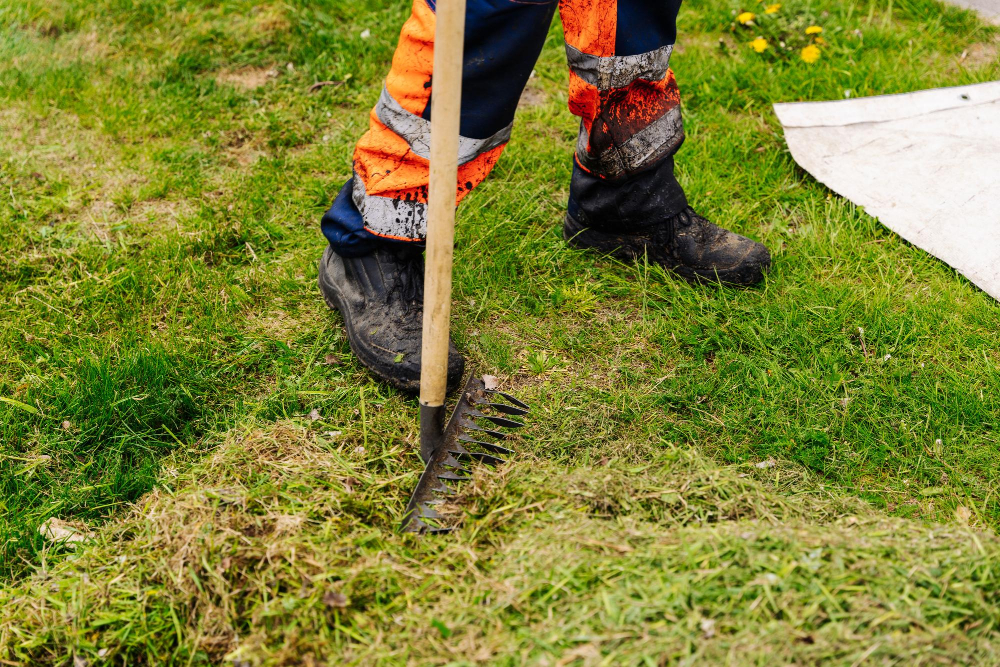
Gravel is easy to install, requires minimal maintenance, and allows water to seep through the surface instead of running off into storm drains. However, proper installation techniques are crucial for ensuring that your gravel driveway lasts as long as possible.
Firstly, you need to prepare the area where you want your gravel driveway installed by removing any grass or vegetation from the site. Next up is laying down a layer of landscaping fabric over the soil before adding crushed stone or other base materials like recycled concrete aggregate (RCA) on top.
Once this has been done correctly, it’s time for spreading out your chosen type of gravel evenly across its surface using a rake or shovel until it reaches about 2-3 inches in depth throughout most areas but can be deeper in some spots depending on how much traffic will be going over them regularly.
Finally comes compacting with either hand tamper tool if small enough space otherwise rent plate compactor machine which helps settle everything together tightly so there won’t be any loose rocks flying around when cars drive over them later on!
Seashell Driveways
Seashells are a natural material that can be used as an attractive and sustainable driveway surface. They provide excellent drainage, which means they won’t hold water or create puddles during heavy rain.
Seashells come in different sizes and colors, so you can choose the ones that best suit your home’s aesthetic appeal. The shells’ light color also reflects sunlight rather than absorbing it like traditional dark-colored asphalt surfaces do.
One of the significant benefits of using seashells is their availability; they’re abundant on many beaches worldwide, making them cost-effective compared to other green alternatives such as permeable concrete or recycled plastic paving.
However, before installing a seashell driveway at your home’s entranceway, consider its maintenance requirements carefully. Seaside environments may cause erosion over time due to windblown sand particles scratching the shell surface away from exposure to saltwater spray.
Porous Concrete Advantages
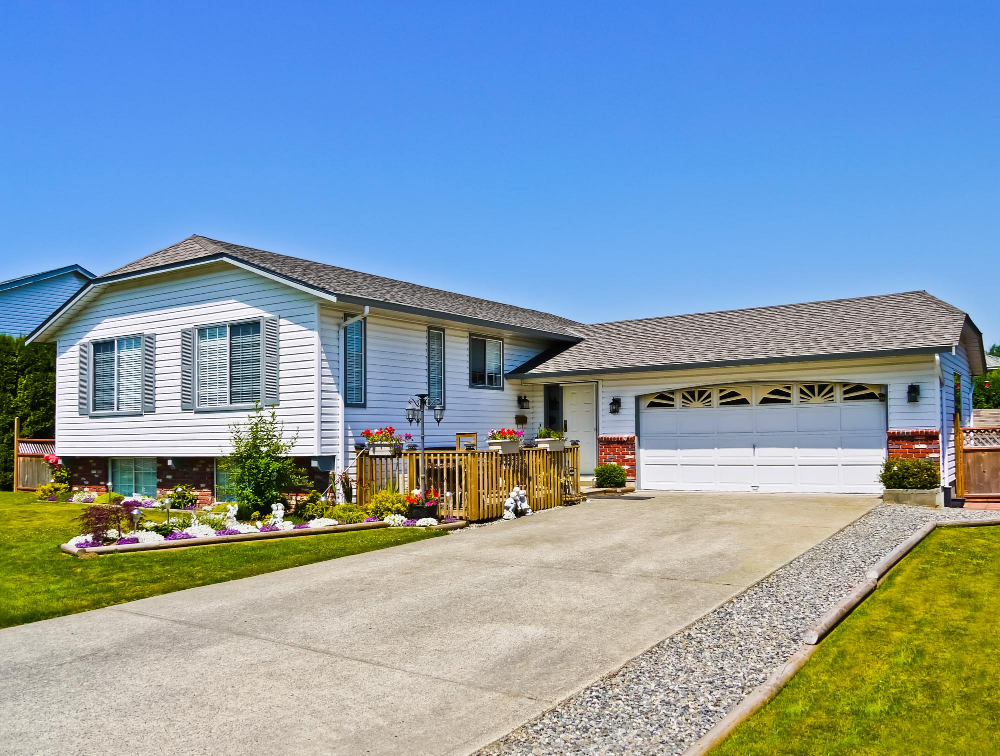
This type of concrete has tiny holes that allow water to pass through it, making it ideal for areas with heavy rainfall or where drainage is a concern.
One of the main advantages of porous concrete is its ability to reduce runoff and prevent flooding. By allowing rainwater to seep into the ground instead of pooling on top, this material helps maintain natural groundwater levels while reducing erosion.
Another benefit of using porous concrete for your driveway is its durability. It can withstand heavy traffic without cracking or breaking down over time like traditional asphalt driveways do.
Moreover, because this type of pavement allows water infiltration rather than runoff into storm drains which eventually pollute our rivers and oceans; it’s considered an environmentally friendly choice as well!
Permeable Paving Options
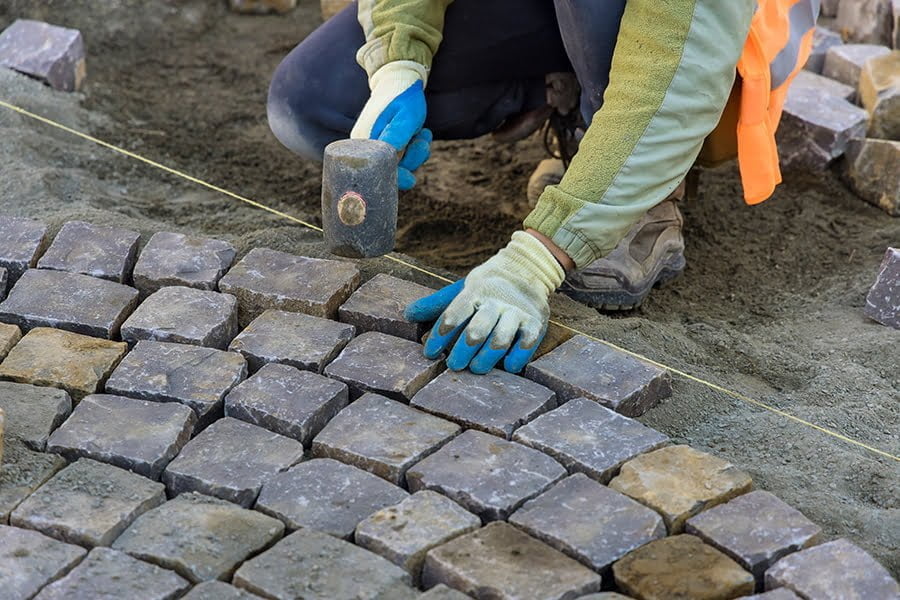
Permeable pavers are designed to allow water to pass through them, reducing runoff and preventing erosion. They come in various materials such as concrete, brick, or stone.
One of the most significant advantages of permeable paving is its ability to reduce stormwater runoff by up to 100%. This means that during heavy rainfall or snowmelt periods when traditional driveways would flood with water and cause damage; your permeable driveway will absorb it instead.
Another benefit of using this type of material for your driveway is its durability. Permeable pavers can withstand heavy loads without cracking or breaking down over time like asphalt does.
Lastly, maintenance requirements are minimal compared to other types of driveways since they don’t require sealing every few years like asphalt does. All you need is occasional sweeping and rinsing with a hose!
Grass Driveways
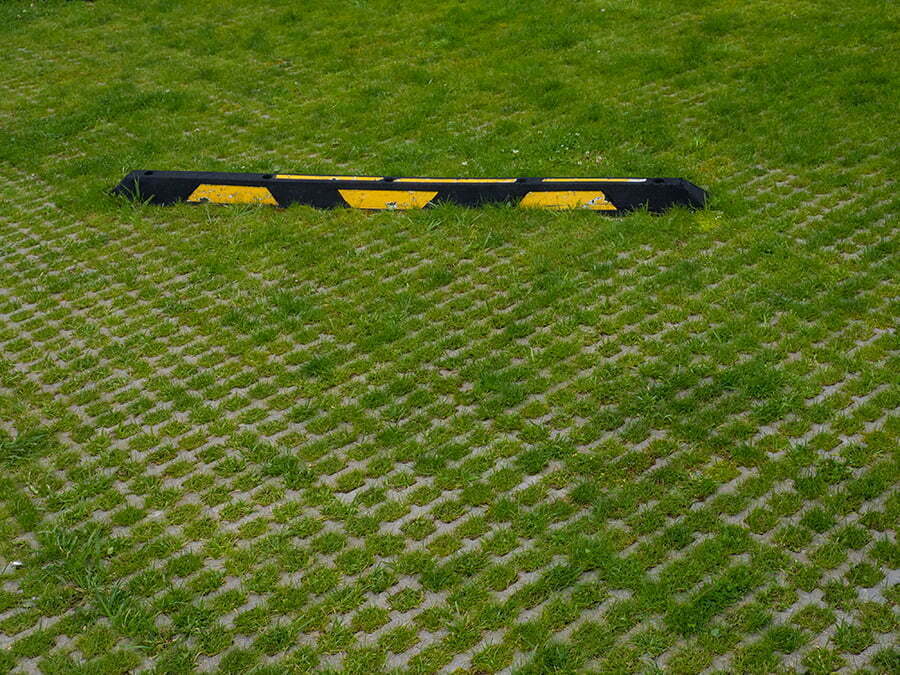
Grass driveways are made by laying down a grid of plastic or concrete cells that are filled with soil and planted with grass seed. The result is an attractive green space that can support the weight of vehicles while also allowing rainwater to seep through into the ground.
One major advantage of grass driveways is their ability to reduce stormwater runoff, which helps prevent flooding in your area. They also provide natural insulation, keeping your home cooler in summer and warmer in winter.
However, it’s important to note that maintaining a grass driveway requires regular mowing and watering just like any other lawn. They may not be suitable for areas with heavy traffic or where snow removal is necessary during winter months.
Grass Pavers Explained
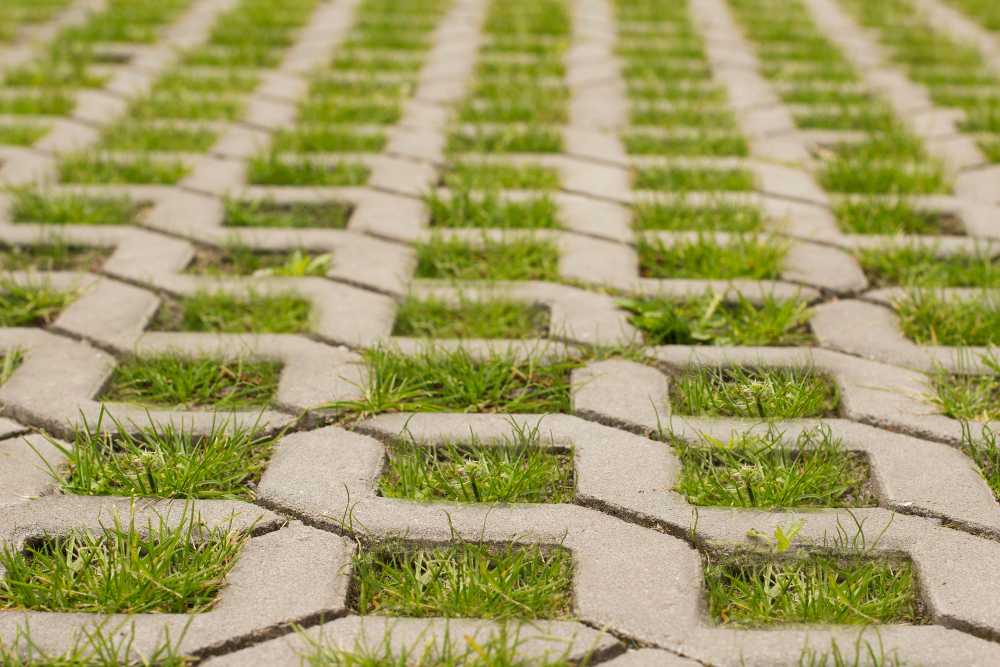
Grass pavers are essentially plastic grids that can be filled with soil and seeded with grass or other plants. They allow rainwater to penetrate the ground, reducing runoff and erosion while also providing a stable surface for vehicles.
Grass pavers come in various shapes and sizes, making them suitable for different types of driveways. They can withstand heavy loads without damaging the underlying soil structure or compromising drainage capacity.
One significant advantage of using grass pavers is their aesthetic appeal; they blend seamlessly into your landscape design while adding texture and color to your driveway area.
However, it’s essential to note that installing grass paver systems requires careful planning as well as professional installation expertise. You need first to prepare the site by removing any existing pavement or debris before laying down a layer of gravel followed by geotextile fabric on top.
Turf Reinforcement Systems
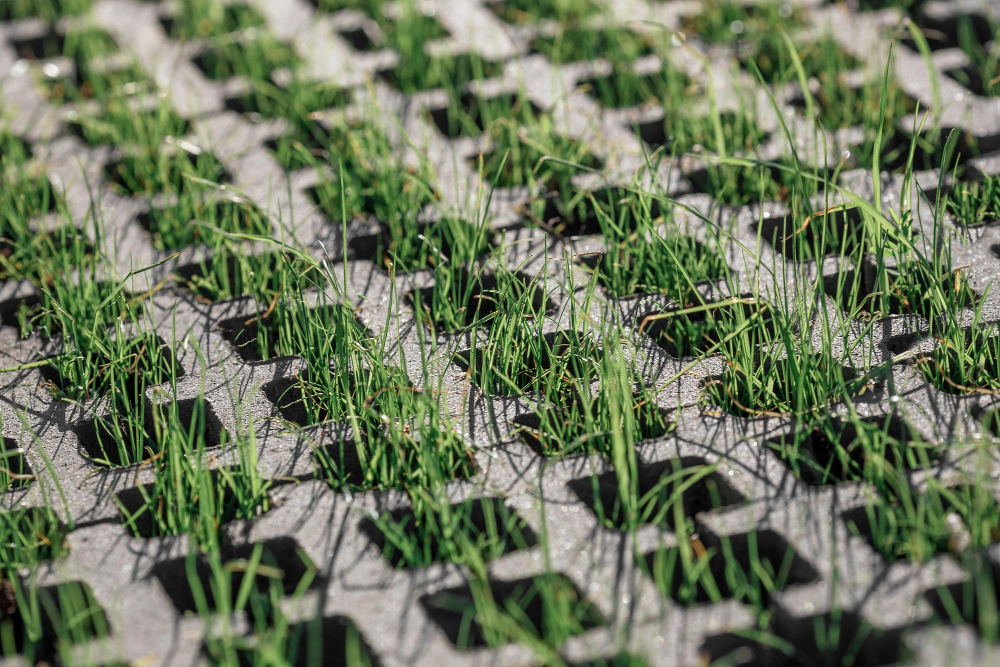
These systems use a combination of grass and plastic or concrete to create a stable surface that can withstand heavy traffic while still allowing water to penetrate the ground.
One popular type of turf reinforcement system is known as “grass pavers.” These pavers consist of interlocking plastic grids filled with soil and seeded with grass. The result is a sturdy surface that looks like natural grass but can support the weight of vehicles without damaging the roots.
Another option is using concrete blocks designed specifically for creating driveways with reinforced turf. They have open spaces between them where you plant your choice of vegetation, which will grow through it over time, creating an attractive green driveway.
Turf reinforcement systems offer several benefits beyond their environmental friendliness. They provide better drainage than traditional asphalt driveways by allowing rainwater to soak into the ground instead of running off into storm drains or causing erosion problems in nearby streams or rivers.
Solar Driveways
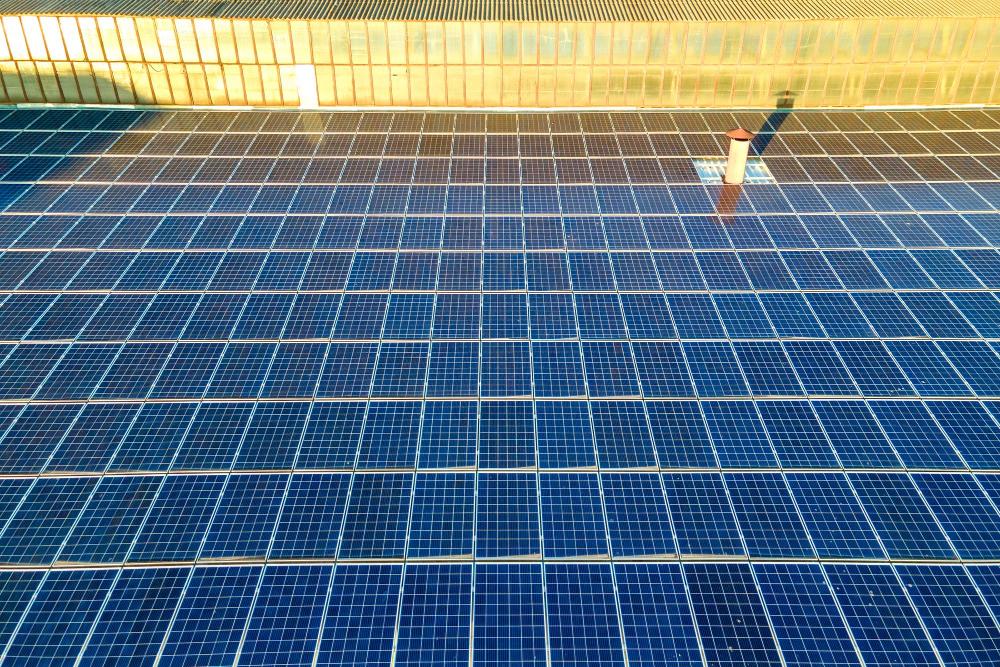
These driveways use photovoltaic cells that absorb sunlight during the day and convert it into electricity that can be used to power your home or charge an electric vehicle. Not only do they look sleek and modern, but they also help reduce your carbon footprint by using renewable energy.
One of the biggest advantages of solar driveways is their ability to generate electricity even on cloudy days. They work best in areas with plenty of sunshine, but even in less sunny regions, they can still produce enough power to make them worthwhile.
While installing a solar driveway may require a higher upfront cost than traditional asphalt or concrete options, it’s important to consider the long-term savings on utility bills as well as environmental benefits when making this investment.
Hemp-Based Driveways
Hempcrete is made from the woody core of the hemp plant mixed with lime and water. It’s an incredibly sustainable material that has excellent insulation properties, making it ideal for use in construction.
Hempcrete can be used to create a durable driveway surface that’s both attractive and environmentally friendly. The material is porous, allowing rainwater to seep through into the ground below rather than running off into storm drains.
One of the biggest advantages of using hempcrete for your driveway is its durability. It can withstand heavy traffic without cracking or deteriorating over time like traditional concrete or asphalt surfaces.
Another benefit of using this natural material is its low environmental impact during production compared to other materials such as cement which requires high energy consumption during manufacturing leading to significant carbon emissions.
While installing a hemp-based driveway may cost more upfront than some other alternatives on our list, it will save you money in maintenance costs over time due to its long-lasting nature.
Mushroom-Based Driveways
These innovative driveways are made from mycelium, which is the vegetative part of a fungus that grows underground. Mycelium acts as a natural binder that holds together organic materials like wood chips or straw.
The result is an incredibly durable and sustainable driveway material that’s also biodegradable at the end of its life cycle. Mushroom-based driveways have been tested in various climates and have proven to withstand heavy traffic without cracking or breaking down.
One major advantage of mushroom-based driveways is their ability to absorb water quickly, reducing runoff during heavy rainfalls. This feature makes them ideal for areas prone to flooding or erosion problems.
Crushed Rock Benefits
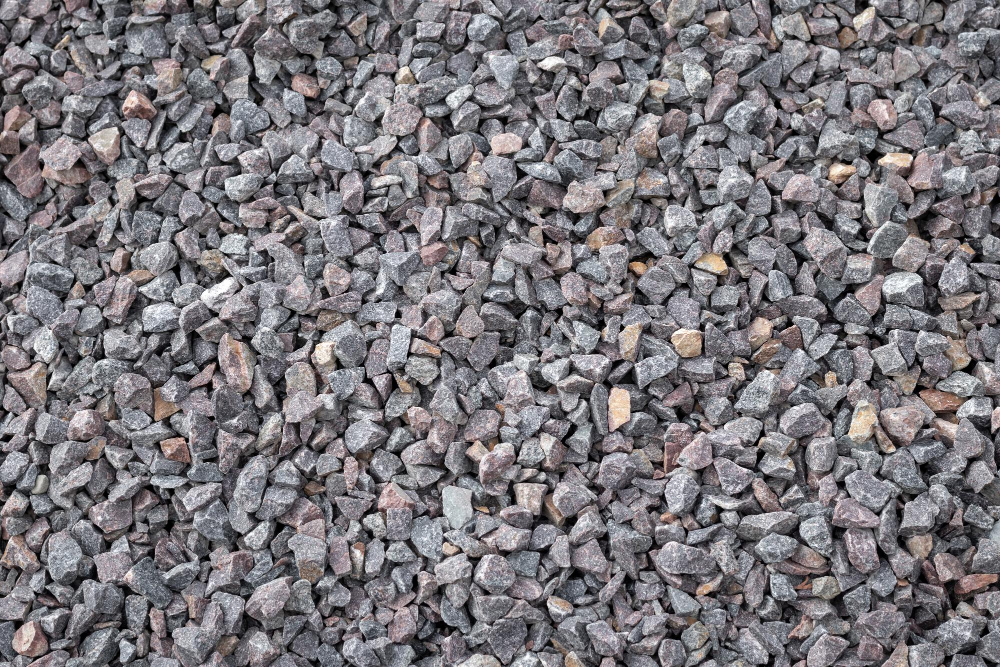
Not only does it provide an attractive look, but it also offers several benefits that make it a great choice for eco-conscious homeowners.
One of the main advantages of using crushed rock as your driveway material is its durability. Unlike asphalt that requires regular maintenance and repairs, crushed rock can withstand heavy traffic without cracking or deteriorating over time.
Another benefit of using crushed rocks in your driveway is its permeability. This means water can easily seep through the surface instead of pooling on top or running off into storm drains.
By allowing rainwater to infiltrate into the ground beneath your driveway, you’re helping prevent erosion and reducing runoff pollution in nearby streams and rivers.
Lastly, choosing crushed rocks over traditional paving materials like concrete or asphalt reduces carbon emissions from manufacturing processes since they are often sourced locally rather than transported long distances.
Recycled Plastic Paving
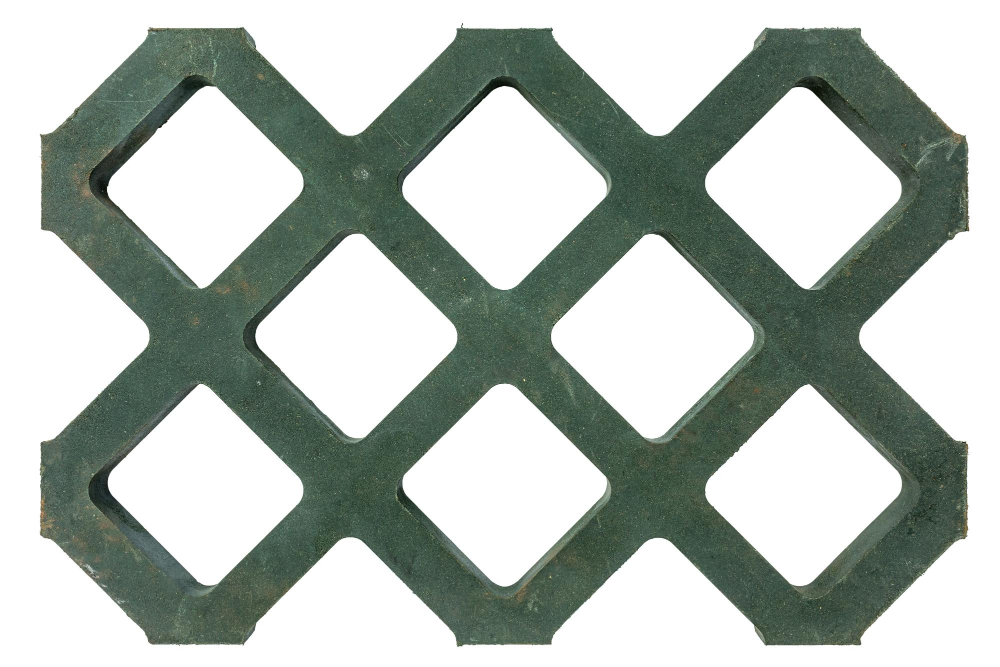
It’s made from recycled plastic waste, which means it helps reduce the amount of plastic that ends up in landfills or oceans. This type of paving is durable, slip-resistant, and requires minimal maintenance.
The process of making recycled plastic paving involves melting down discarded plastics such as milk jugs or water bottles into a liquid form. The melted material is then poured into molds to create pavers that can be used for various applications including driveways.
One significant advantage of using recycled plastic pavers for your driveway is their durability compared to traditional asphalt surfaces. They are resistant to cracking and fading caused by UV rays exposure over time; hence they last longer than other materials like concrete or gravel.
Another benefit worth mentioning about this type of pavement option is its permeability feature which allows rainwater runoff through the surface instead of pooling on top like with conventional pavements leading to erosion problems in some areas.
Environmental Impact
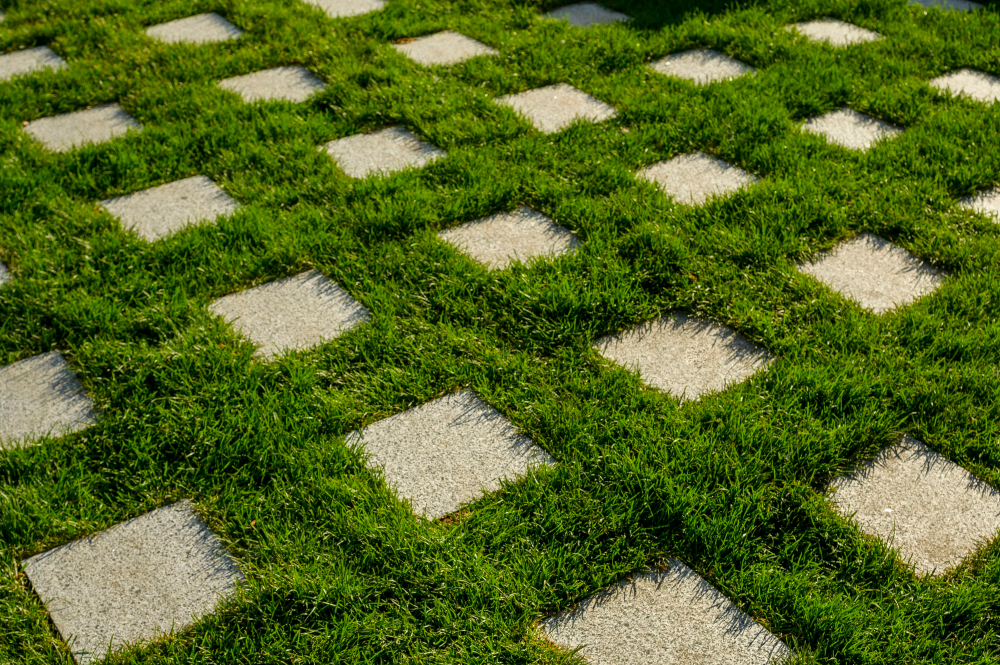
The production of asphalt requires large amounts of energy and releases harmful emissions into the air. When it rains, water runs off traditional driveways and carries pollutants such as oil, gasoline residue, and heavy metals into nearby streams or rivers.
On the other hand, green alternatives like permeable pavers or grass driveways allow rainwater to seep through them instead of running off onto surrounding areas. This helps reduce soil erosion while also filtering out pollutants from stormwater runoff before they reach natural bodies of water.
Moreover, some eco-friendly driveway options use recycled materials that would otherwise end up in landfills. By using these materials for your driveway construction project instead of new ones made from virgin resources you can help reduce waste generation while also conserving natural resources.
Maintenance Considerations
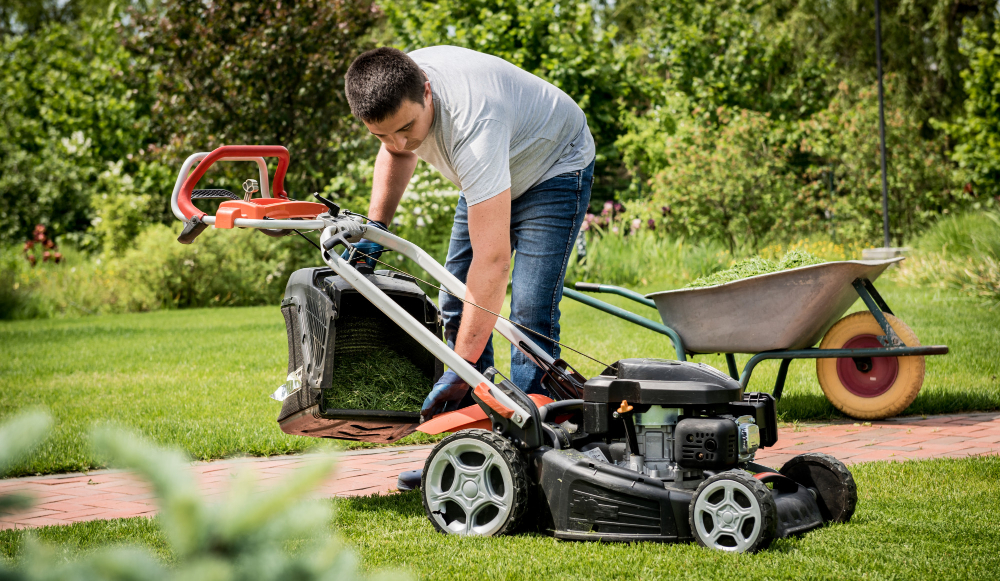
The level of maintenance required will depend on the type of driveway you choose.
For instance, grass driveways need regular mowing and watering during dry spells to keep them looking lush. Porous concrete requires occasional cleaning with a pressure washer or broom to prevent clogging from debris buildup.
Gravel driveways may need periodic re-grading or replenishing with fresh gravel as it gets displaced over time. Seashell driveways also require occasional topping up as shells get crushed underfoot.
It’s important to note that while some green driveway options may have higher upfront costs than traditional asphalt, their long-term maintenance requirements can be significantly lower, making them more cost-effective in the long run.
Choosing an eco-friendly alternative for your driveway is not only good for our planet but also adds value and beauty to your property.
Durability Comparison
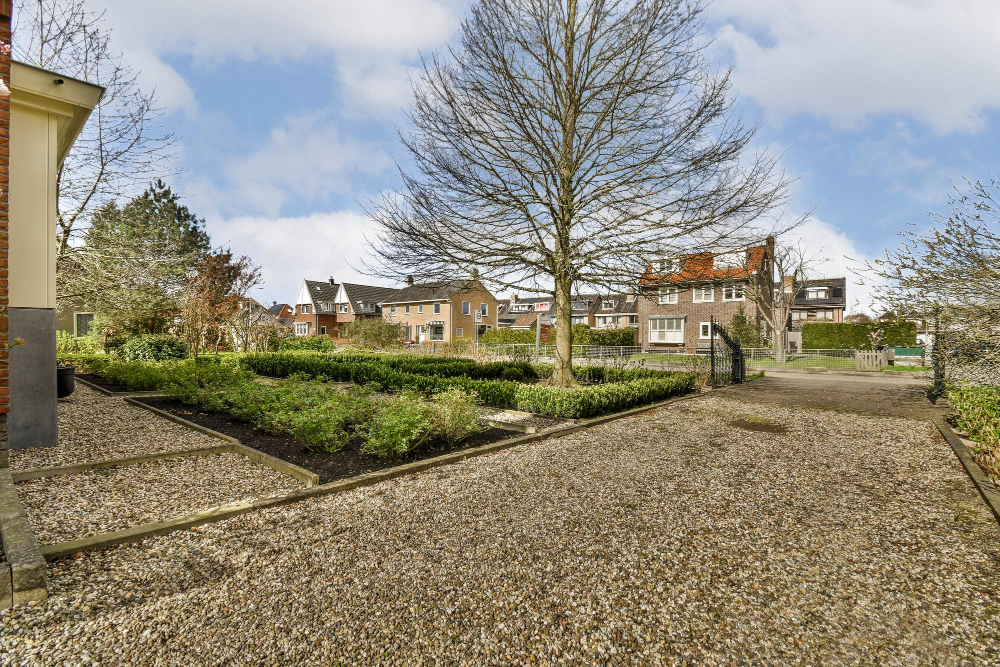
While some eco-friendly options may seem fragile, they can be surprisingly durable and long-lasting. For instance, porous concrete has been shown to withstand heavy traffic and harsh weather conditions for decades without cracking or deteriorating.
Gravel driveways are also known for their durability as they can last up to 100 years with proper maintenance. Grass pavers are another option that offers excellent durability while providing a natural look that blends seamlessly with your landscape.
It’s essential to note that the lifespan of any green driveway depends on various factors such as installation quality, climate conditions, and maintenance practices. Therefore it’s vital always to follow the manufacturer’s instructions regarding upkeep and repair procedures.
Green Driveway Cost

The type of material you choose, the size and shape of your driveway, and whether you hire professionals or do it yourself can all affect the final price tag.
While some eco-friendly options may be more expensive upfront than traditional asphalt driveways, they often have lower maintenance costs over time. For example, porous concrete or permeable pavers require less upkeep than regular concrete because they allow water to drain through them instead of pooling on top.
Another factor that affects cost is installation. Some materials like grass pavers or turf reinforcement systems can be installed as a DIY project if you’re handy with tools and have some experience in landscaping.
However, other options like seashell driveways may require professional installation due to their complexity.
DIY Installation Tips

It’s important to note that some green driveway options require more expertise than others. For instance, while gravel driveways are relatively easy to install with basic tools and skills, permeable pavers may need professional installation.
Before starting your DIY project, research the materials needed for your chosen green driveway option and ensure they are readily available in your area. You should also consider factors such as drainage requirements and soil type before selecting the best material for your location.
When installing any type of green driveway yourself or with help from friends or family members who have experience in construction work is always recommended. This will not only save you money but also give you control over the quality of work done on your property.
Transforming an asphalt driveway into a sustainable one doesn’t have to cost much if you choose wisely among these eco-friendly alternatives we’ve discussed above – whether it’s porous concrete or grass pavers! With proper planning and execution using our tips above on how to install them yourself (or hire professionals), anyone can create their dream environmentally friendly driveaway without breaking their budget!
FAQ
What’s the most eco-friendly driveway?
The most eco-friendly driveway is a permeable or porous paving solution, providing a safer and more sustainable option for homes.
Is there a sustainable alternative to asphalt?
Yes, a sustainable alternative to asphalt is permeable pavers, which require no concrete, use less equipment in production, and can be made from 100% post-consumer recycled materials.
Can you have a green driveway?
Yes, you can have a green driveway by using permeable stabilized gravel or grass surfaces, which prevent runoff and protect the environment.
What is a natural alternative to asphalt?
A natural alternative to asphalt is gravel, as it is an inexpensive option consisting of hard, angular gravel laid throughout the driveway.
How do permeable pavement options benefit the environment?
Permeable pavement options benefit the environment by reducing runoff, decreasing flooding, and replenishing aquifers through filtration and absorption of rainwater.
What materials can be used for creating a low-impact driveway?
Materials such as permeable pavers, porous concrete, gravel, or grass pavers can be used for creating a low-impact driveway.
Are recycled materials an effective choice for eco-friendly driveways?
Yes, recycled materials are an effective choice for eco-friendly driveways as they promote environmental sustainability and reduce waste.
Recap
